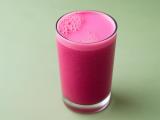Even though many believe that the body sleeps while we sleep, in reality the digestive system works at half capacity during the night. When we burden it with heavy, greasy, or sweet food, we literally force it into full night shift. And this often leads to interrupted sleep, restlessness, and unusual nighttime hunger.
Why does certain food wake us up in the middle of the night?
When we eat late, the body uses energy for digestion instead of regeneration. The stomach produces more acid, which can cause reflux (the return of stomach contents into the esophagus, felt as a burning pain in the chest). When reflux occurs, the body triggers a gentle alarm reaction, causing us to wake up, often without knowing why.
A study published by the University of Toronto in 2023 found that people who consume a heavy or sweet meal less than two hours before bedtime sleep an average of 47 minutes less than those who eat lighter and earlier. Additionally, they experience up to 30% more micro-arousals (brief moments of waking up that are not remembered in the morning).
- Fried food - the queen of poor sleep
For all of you who enjoy crispy chicken or fries, know that the body sees it differently. Fatty and fried food slows down digestion, meaning the stomach continues to work full force long after dinner. When we lie down, acid reflux becomes easier, leading to the burning sensation that sometimes wakes us up in the middle of the night.
According to the American Gastroenterological Association (AGA, 2022), fatty food causes 2.5 times more cases of nighttime reflux than a balanced meal with complex carbohydrates. So, if you want a peaceful night, opt for something that the digestive system can handle easier, such as steamed vegetables or rice with a little olive oil.
- Carbonated drinks - bubbles that steal sleep
Although a glass of juice or carbonated beverage may seem harmless, a fizzy drink at night has almost the same effect as an energy drink. The carbon dioxide in the bubbles creates pressure in the stomach, triggering a feeling of bloating and increasing the likelihood of reflux.
What's even worse is that most of these drinks contain caffeine and sugar, a combination that disrupts the body's circadian rhythm.
In a study by the Sleep Foundation (2021), it was found that those who consume a carbonated drink within three hours of bedtime fall asleep an average of 23 minutes later than those who drink plain water. So, if you're having trouble sleeping at night, it might not be the lack of stars in the sky, but the lack of bubbles in your glass.
- Fruit juices - natural but still acidic
Orange, grapefruit, or pineapple juices are indeed full of vitamins, but they also contain acids that are not beneficial to the stomach at night. When we drink these juices late, the body produces more acid to balance the pH in the stomach. The result is a feeling of heaviness, acidity, and disturbed sleep.
Interestingly, a study from Japan in 2024, which followed 3000 adults, showed that regular consumption of citrus juices after 8 p.m. increases the risk of nighttime digestive disorders by 41%.
If you want something refreshing in the evening, opt for water with a slice of cucumber or mint instead. This drink will be just as refreshing, non-acidic, and even help soothe the stomach.
- Chocolate - the sweet enemy of sleep
Chocolate has its charm but unfortunately also contains caffeine. While the amount is less than in a cup of coffee (dark chocolate contains around 20-25 mg of caffeine per 50 g), it's still enough to keep the brain alert. In addition to caffeine, it also contains theobromine, a natural substance that acts as a stimulant, similar to coffee but slower.
A study conducted by Harvard Medical School in 2023 showed that consuming dark chocolate after 6 p.m. shortens the deep sleep (REM) phase by 14%. This is the stage of sleep when the body rejuvenates the most.
So, chocolate can be perfect for an afternoon treat but not for a restful night.
- Red meat - strong but heavy on the stomach
Red meat (beef, pork, lamb) has its benefits. It contains iron, zinc, and proteins but is very demanding for digestion. When we eat a steak late in the evening, the body redirects blood from other organs to the digestive system. Instead of relaxing, the body has to work full throttle.
According to the European Institute of Nutrition (2023), digesting red meat takes 6 to 8 hours, while fish is digested in 2 to 3 hours, and vegetables in less than an hour. That's why many toss and turn in bed after a meaty dinner because the body simply hasn't finished its job.
If you're a meat lover, have it for lunch; in the evening, try a rustic homemade remedy. This means a bowl of rice soup with carrots, which soothes the stomach and warms the body. The older folks used to say: a warm soup before sleep soothes the soul and the stomach.
- Sugar - the silent thief of sleep
The biggest culprit of poor sleep is sugar. When we consume sweet foods (desserts, juices, pastries, ice cream), blood sugar spikes quickly, the body releases insulin to regulate it, and then the value suddenly drops again. This nighttime drop causes sudden hunger, restlessness, or even sweating.
The American Sleep Association (2022) study showed that people who consume a lot of sugar after 7 p.m. spend a third of the night in shallow sleep. So, if you reach for chocolate flakes or cake in the evening, you may start the evening sweetly, but you may find it hard to sleep through it.
Folk remedies for better sleep
Fortunately, there are many natural and inexpensive solutions that our grandmothers have long known about. Science is now confirming them one by one.
- Chamomile - contains apigenin, a natural compound that calms the nervous system. According to the University of Oxford (2020), regular consumption of chamomile tea before bed improves sleep quality in 68% of people with insomnia.
- Warm milk with honey - milk contains tryptophan (an amino acid that promotes the production of the hormone melatonin), and honey stabilizes blood sugar levels.
- Banana before bed - contains magnesium and potassium, which relax muscles and reduce stress.
- Mint or lemon balm - act as natural anti-stress tonics. Many people in rural areas still drink lemon balm tea for heart and sleep relaxation today.
And the best part is - all of these solutions cost less than a euro and can transform your nights.
What can you do today?
If you want to sleep peacefully, you don't need expensive pills. Simply enjoy a light, warm, and friendly meal in the evening. Have your last meal at least three hours before bedtime, drink more water during the day, not at night, and avoid fatty and sweet foods after 6 p.m.
Sleep is not a luxury - it's basic maintenance for the body, just like oil in a motor. When we let it work peacefully, it rewards us the next morning with energy, freshness, and a clear mind. But remember, sleep is a medicine that cannot be bought, yet it can be ruined by a poor dinner.
So, if you are often awakened at night by hunger, dry mouth, or a burning sensation in the stomach, don't blame it on stress or age,
instead, take a look at your plate.
The old folks used to say: those who go to bed with a light stomach wake up with a light heart.









 Would you like to be informed about news on the website?
Would you like to be informed about news on the website?

